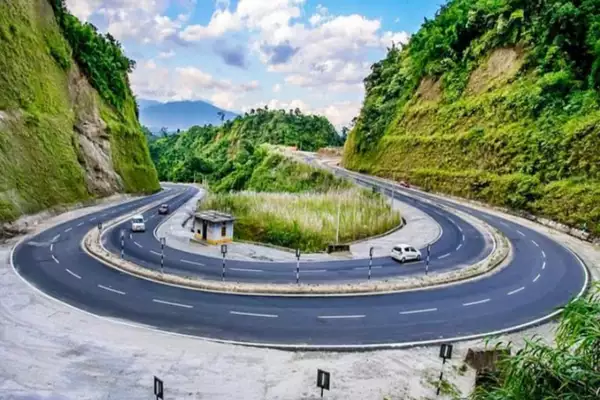The inaugural ceremony for India’s first National Highway Steel Slag Road section on the NH-66 Mumbai-Goa was led by Member (S&T) at NITI AAYOG.
About Steel Slag Road Technology:
- The Steel Slag Road Technology is developed by CSIR-Central Road Research Institute (CSIR-CRRI).
- It converts steel industry waste into a valuable resource for constructing eco-friendly national highways.
Construction and Materials:
- JSW Steel, under the guidance of CSIR-CRRI, constructed a 1 km long, four-lane road section on the Indapur-Panvel Section of NH-66.
- Approximately 80,000 tons of CONARC Steel slag were processed into steel slag aggregates at JSW Steel’s Dolvi, Raigad plant.
- These processed steel slag aggregates, superior to natural aggregates in mechanical properties, were utilized in all layers of the road.
What is Steel slag?
- Steel slag is a byproduct of the steel-making process, typically produced during the separation of molten steel from impurities in steel-making furnaces.
- It primarily consists of calcium, magnesium silicate, and iron-based minerals.
Properties:
- Durability: It is more durable than traditional road materials.
- Strength: High load-bearing capacity, making it ideal for heavy-traffic roads.
- Rough Texture: Offers better grip and skid resistance.
- Environmental Benefits: Using slag, a waste product, reduces landfill waste and conserves natural resources.
Process of Road Construction:
- Crushing and Screening: The slag is crushed and screened to the desired sizes.
- Layering: It is used in various layers of road construction – as a base, subbase, or even in asphalt mixtures.
- Mixing with Other Materials: Sometimes, it’s mixed with other materials to enhance certain properties.
Environmental Impact:
- Recycling Industrial Waste: Utilizes a byproduct, reducing the environmental impact of steel manufacturing.
- Reducing Carbon Footprint: Can reduce the carbon footprint of road construction by replacing materials that require more energy-intensive production processes.
Challenges:
- Expansion Issues: Some types of steel slag can expand when they absorb moisture, potentially causing structural issues.
- Quality Control: The quality of slag can vary, so careful testing and quality control are necessary.
Applications:
- Beyond roads, steel slag is also used in land reclamation, railroad ballast, and as an aggregate in concrete.
Ref: Source
| UPSC IAS Preparation Resources | |
| Current Affairs Analysis | Topperspedia |
| GS Shots | Simply Explained |
| Daily Flash Cards | Daily Quiz |



